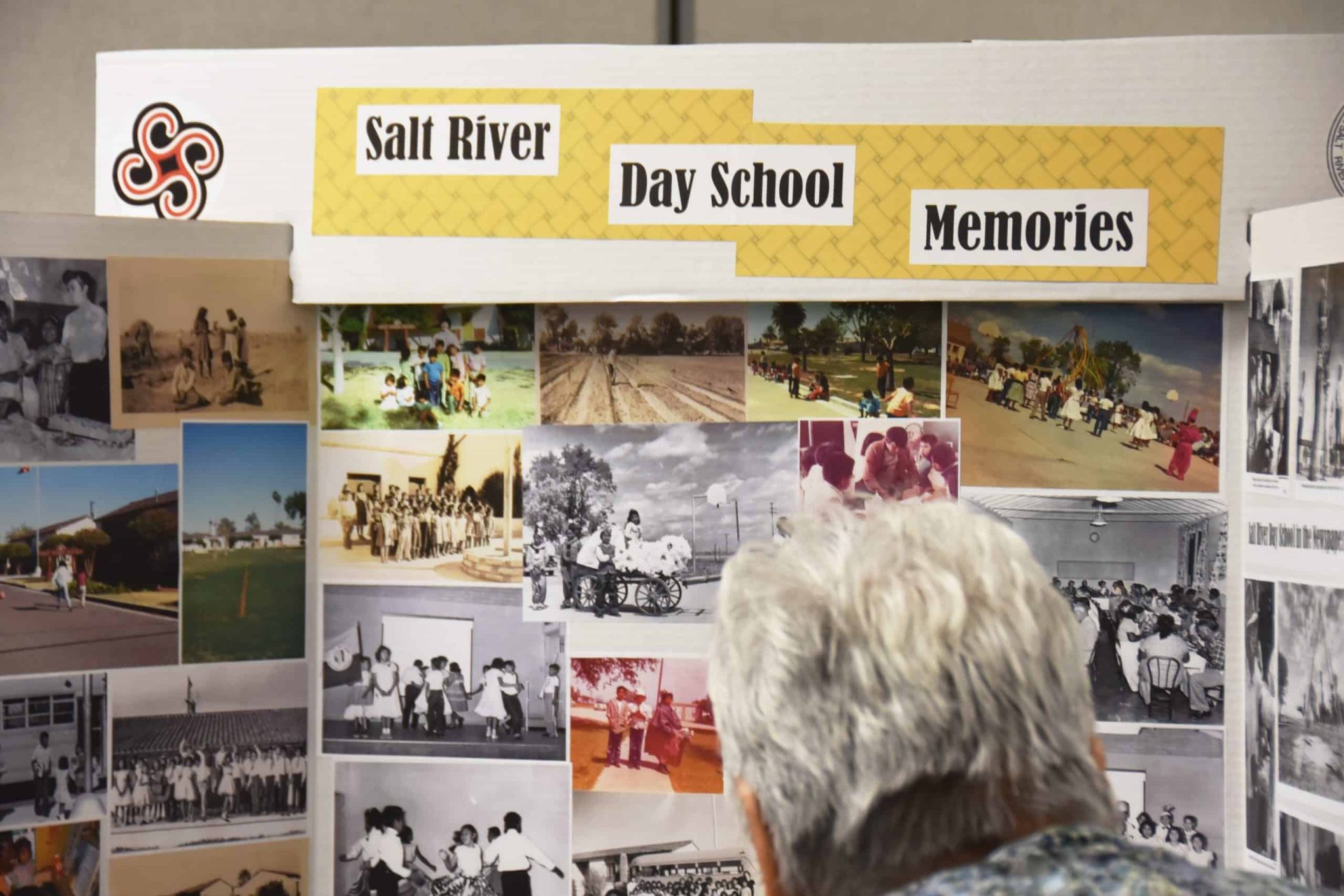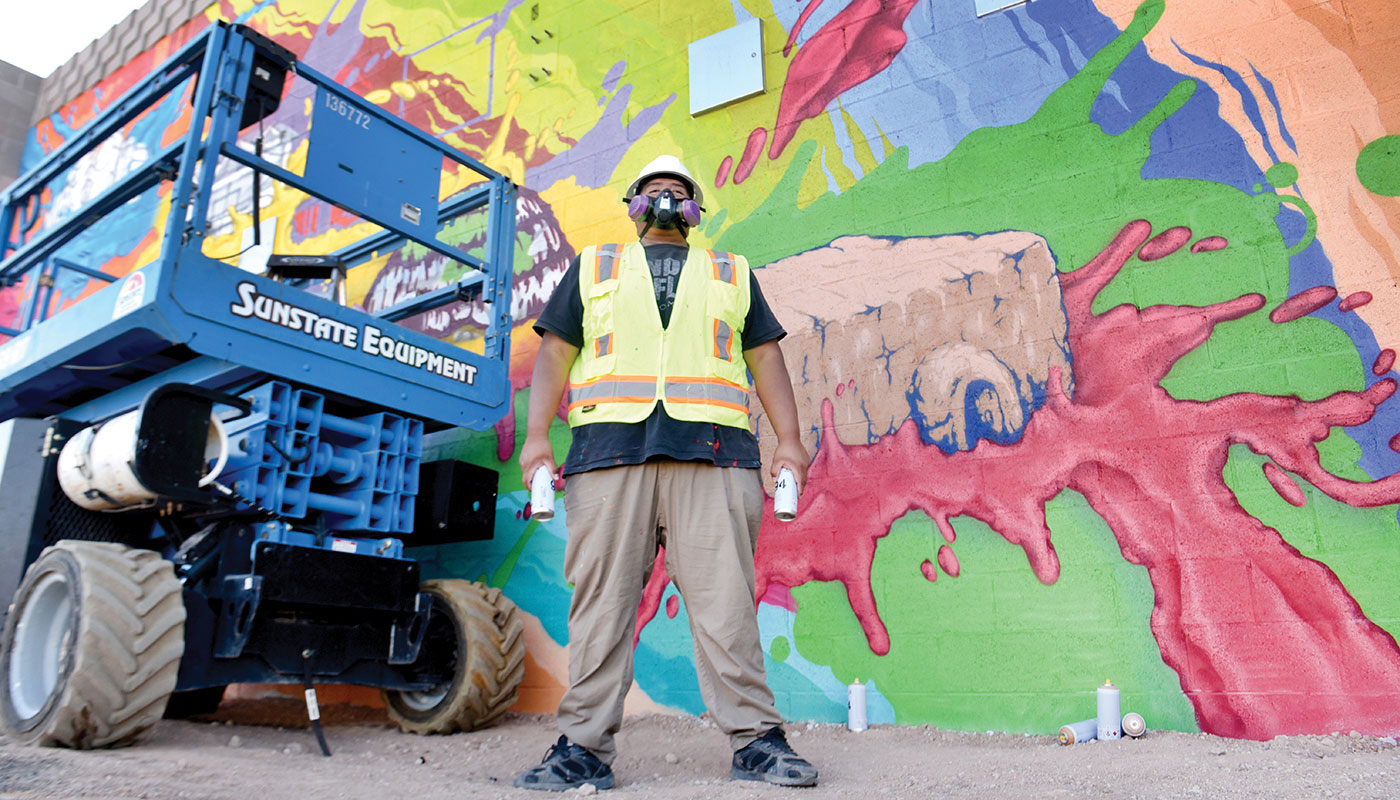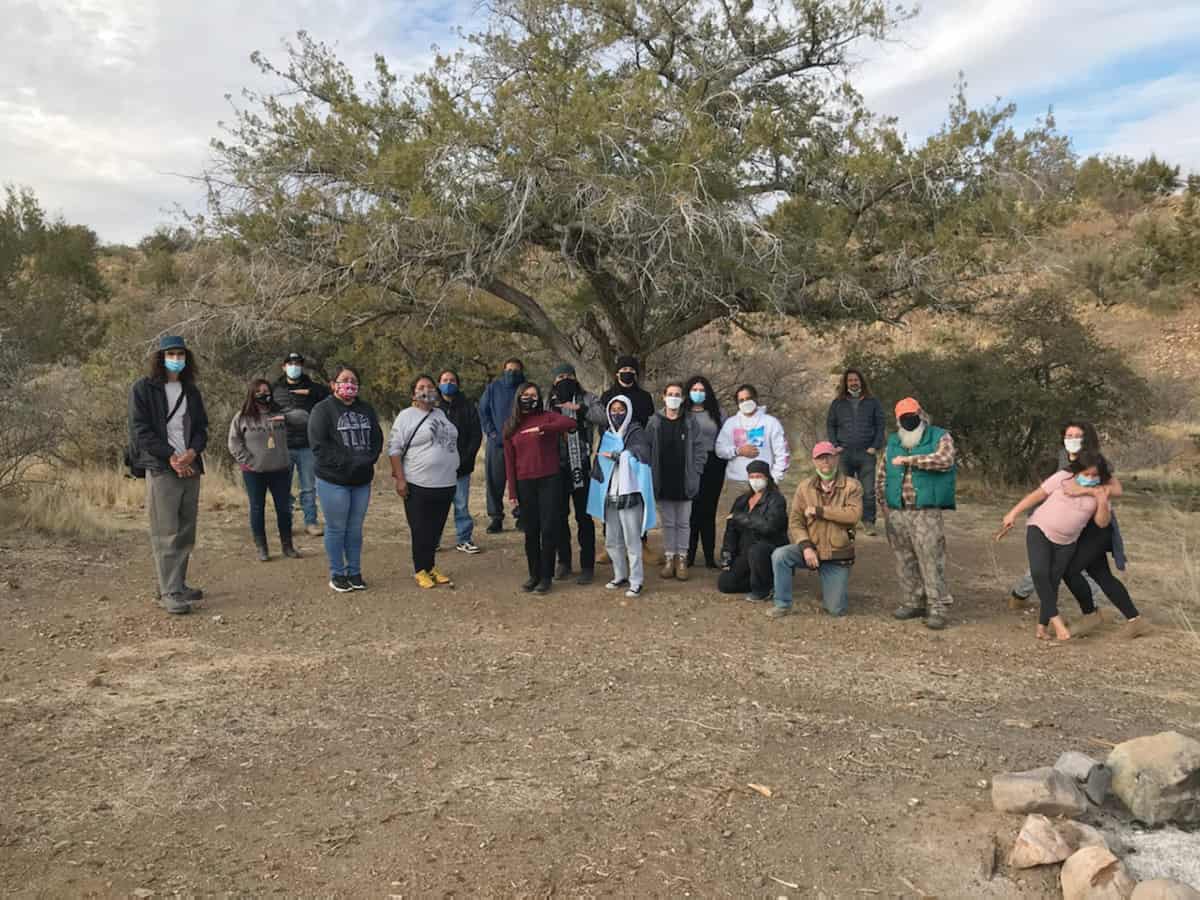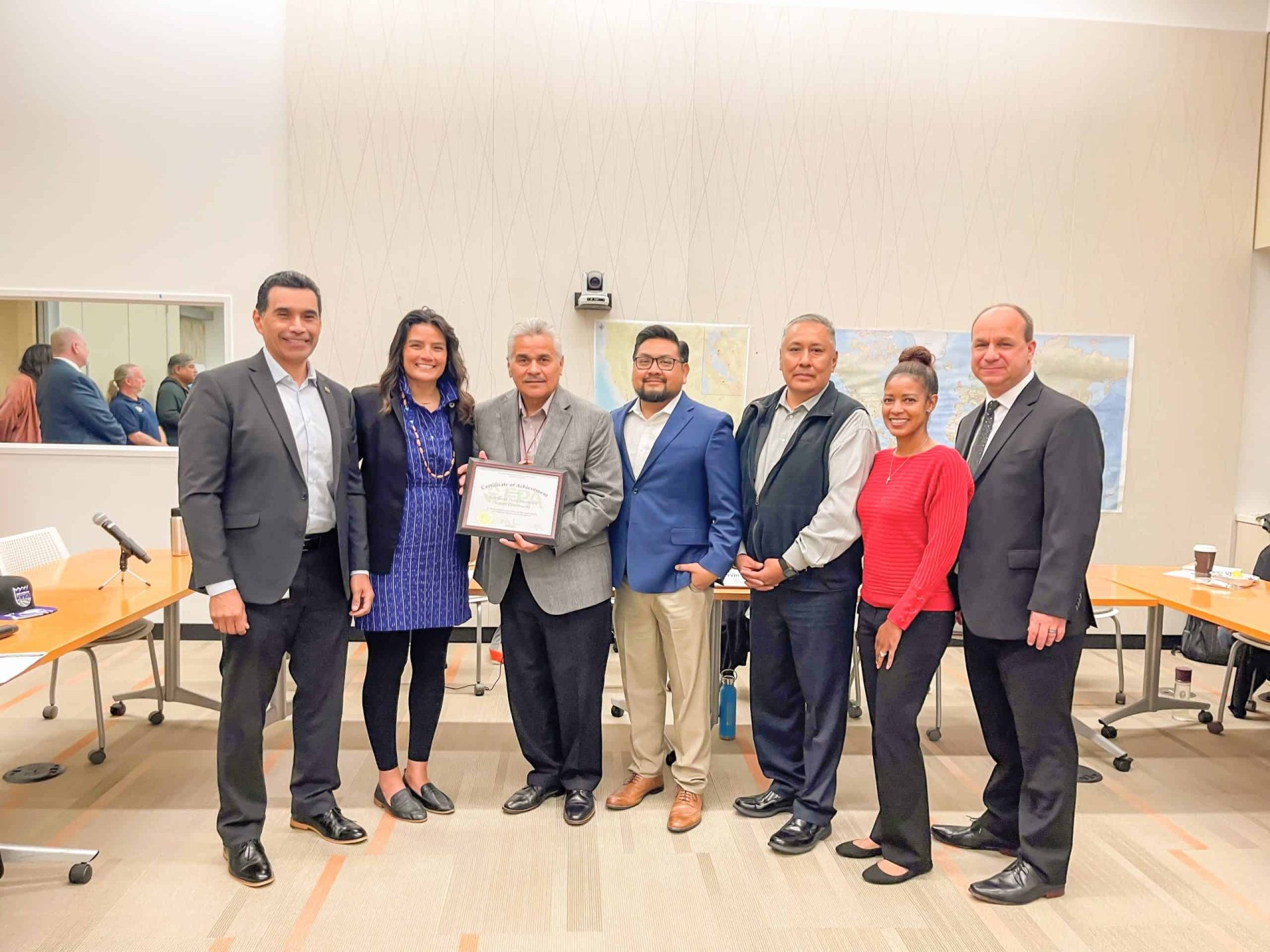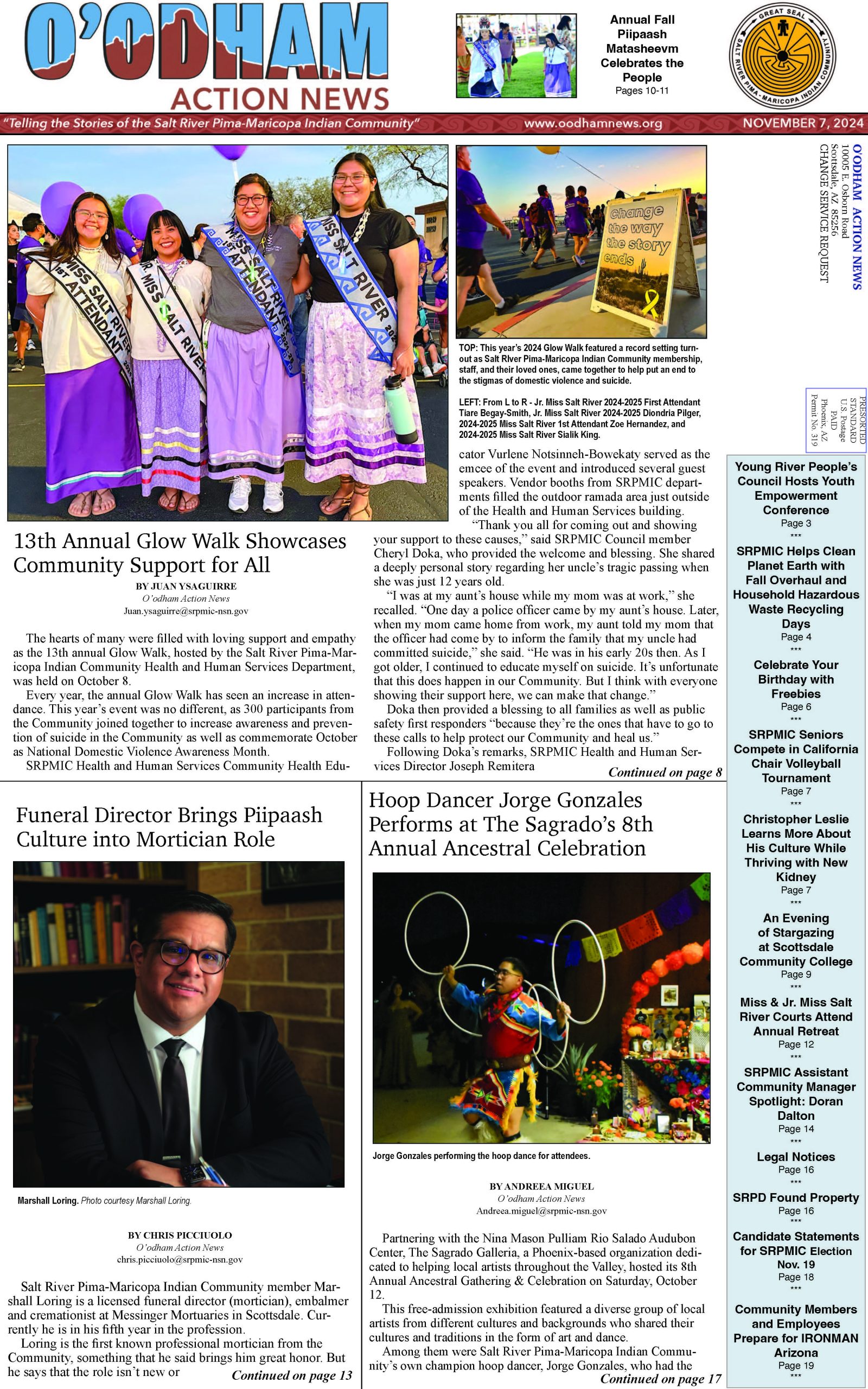VIEWS: 761
November 9, 2023Day School Renovation Project Update
Built in about 1934, the Salt River Day School near Longmore and McDowell roads is an iconic and historic piece of property located on the Salt River Pima-Maricopa Indian Community. Although the landscape now may look bare from the outside, the school property is still filled with the stories of students and Community members who remember their time there.
The Day School was still in operation until 2007, but it closed when the new Salt River Elementary School was completed, according to Cultural Resources Department Director Kelly Washington.
Now, the school will be restored to its former glory over the course of an upcoming renovation project that could take 18 months or more, with a new purpose to preserve the language, culture and history of the Community.
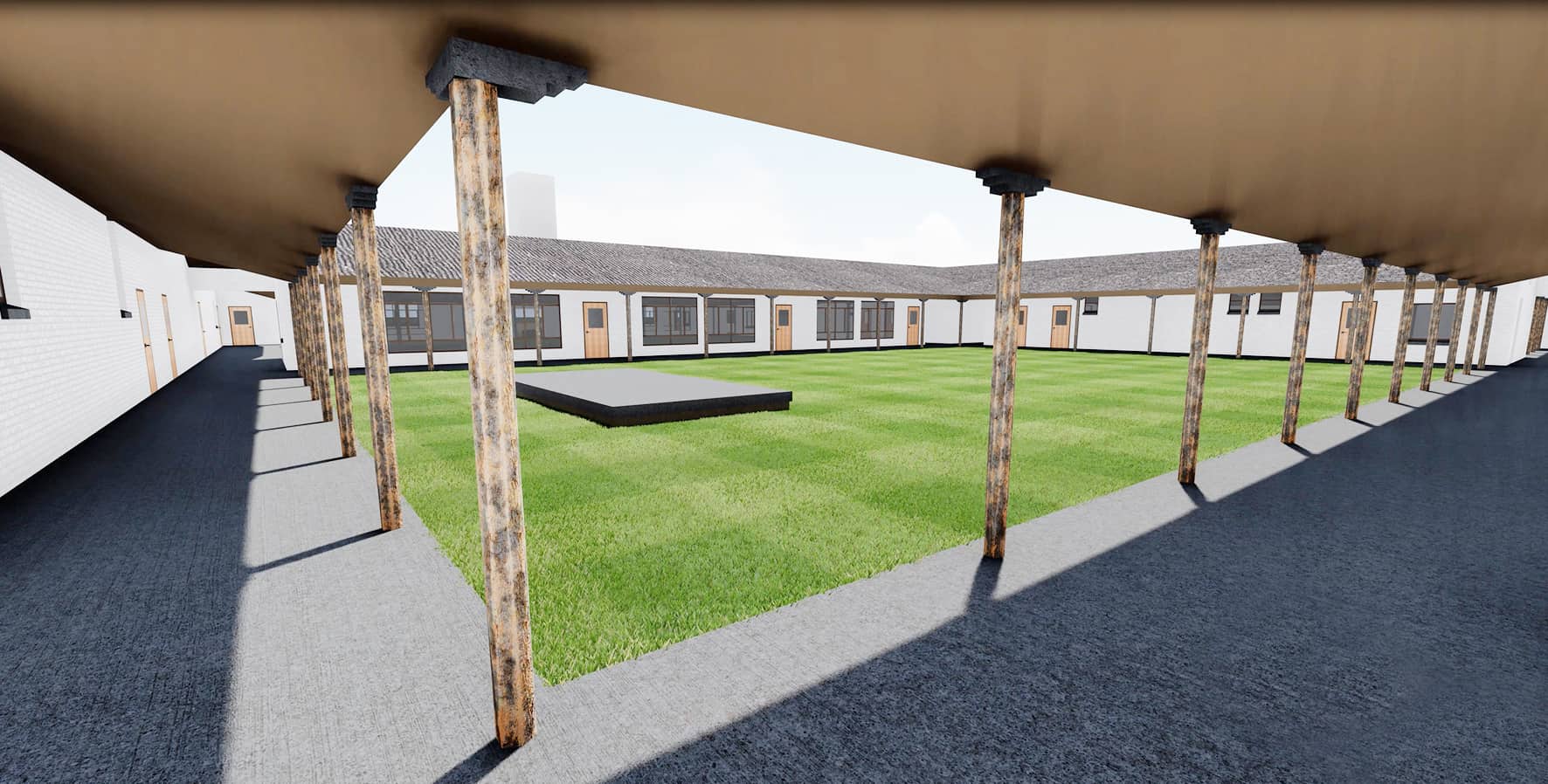
“The renovation project has been ongoing for quite a number of years, and we’re finally at the point where construction is going to start in the next month or so,” said Washington. “The building hasn’t changed, but the landscape and things around it have changed over time. Depending on when you visited this place, it may look different than someone else’s memory [of it].”
Another focus of the project is the renovation of the old teachers’ dormitory on the property.
Once construction is completed, CRD staff will relocate to the building from their current offices on Osborn Road.
In addition to new CRD office space, the restored Day School will provide nearly 30,000 square feet of indoor/outdoor space for cultural educational programming.
“Part of our charge to the BIA was to make sure that the building was preserved for future generations,” said Washington. “How it might be used is something that we were also tasked with. In going through that process, we had a number of goals. The overarching goal was to maximize the cultural program services to serve the highest number of Community members.”
Washington said that there were plans for a cultural center in the 1990s, but it never happened. Because those plans were already well documented, the CRD tried to incorporate as many of those ideas as possible into this project.
Over the past few years, the Community went through a lot of work to transfer the property from the Bureau of Indian Affairs back to the tribe, Washington noted. He said that the transfer of the building to the tribe couldn’t happen until the building was environmentally safe.
Due to lead paint and asbestos, the building had to be gutted. However, the exterior footprint of the Day School is being kept as close to the original as possible.
“What we were left with were the walls and the roof. Not much else inside,” said Washington. “The walls are very important, because we know that Community members helped to put up these walls. Community-member students at the Phoenix Indian School, as part of their vocational training, were sent here and paid a salary to build the walls of the structure, so there is relevance to the facility being here.”
The impact of the Day School is still felt today, as the Community Garden adjacent to the property was built by students of the school.
The Cultural Resources Department continues to collect memories from Community members who are either former students or former employees of the school to help aid the renovation project.

